The Smart Decarceration Initiative has launched a two-year research project to advance “deferred prosecution” programs, thanks to funding from the Laura and John Arnold Foundation.
Smart Decarceration starts research on ‘deferred prosecution’


The Smart Decarceration Initiative has launched a two-year research project to advance “deferred prosecution” programs, thanks to funding from the Laura and John Arnold Foundation.
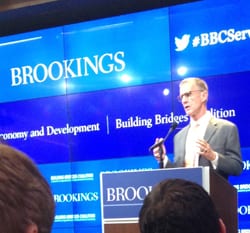
Hosted by Brookings and the Building Bridges Coalition, the June 14 event in Washington, D.C., was the 10th anniversary forum on the role of volunteers in achieving the United Nations Sustainable Development Goals for 2030 and on the coalition’s impact research.

Building on a longtime working history, leadership from the Center for Social Development formally advised the Israeli government in May on best practices for implementing the country’s new law to confer universal savings accounts on children born in Israel. The law takes effect in January 2017.
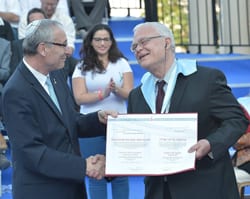
CSD Director Michael Sherraden was awarded an honorary doctorate in philosophy in May at Hebrew University of Jerusalem.
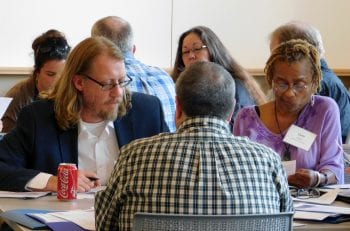
More than 100 people converged on Washington University in St. Louis for Influencing Social Policy’s 2016 national conference, “Race and Inequality: Policy & Advocacy for Structural Change.”

Top Ghana officials, representatives from more than 20 financial institutions and practitioners met in April in Accra, Ghana, to learn about YouthSave research findings and how they could encourage young people to open bank accounts and save.

New research from the Center for Social Development at Washington University showed that low- to moderate-income black students and graduates accrued $7,721 more education debt than their white counterparts.

Just days before this year’s April 18 tax filing deadline, U.S. Sens. Cory Booker (D-NJ) and Jerry Moran (R-KS) proposed a plan to encourage Americans to build emergency funds.

Social entrepreneur Peter Nares, the founder of Prosper Canada and longtime friend of the Center for Social Development, died on April 5. He was 66.

We are pleased to share news from and highlight ongoing collaborations with our global partners the Centre for Social Development Asia, at the National University of Singapore, and the Centre for Social Development in Africa, at the University of Johannesburg.
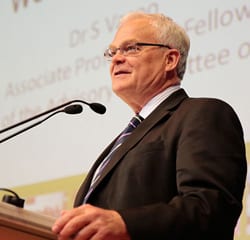
The Singapore government announced on March 24 that it significantly expanded Child Development Accounts as of that date.

Families’ costs have decreased for Missouri’s MOST 529 college savings plan, and now there is no minimum deposit required to open an account.

The Collaboration on Race, Inequality, and Social Mobility in America examines the impact of inequality and structural racism on people of color in our country.

Every student in public, private and home schools in Salem City, N.J., will have access to a seed deposit in a 529 college savings account starting in April, officials announced.
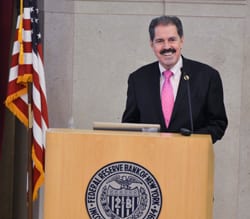
In the midst of the 2016 tax season, leaders from philanthropy, policy, practice and academia convened in at the Federal Reserve Bank of New York for a symposium about using tax time to build Americans’ financial capability.
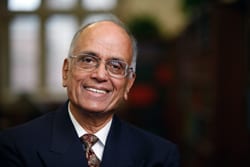
Dean Khinduka built the modern research-oriented George Warren Brown School of Social Work. He is also a dedicated leader committed to furthering the social work profession.

An ambitious call to action on pressing social problems in America was issued January 14 at the Society for Social Work and Research annual conference in Washington, D.C.

The Volunteer Income Tax Preparer’s Toolkit: Showing Clients Why Tax Time is the Right Time to Save is a communications and resource guide for tax preparers on encouraging clients to save a part of their refund at tax time.
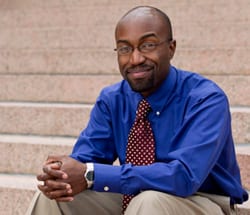
On January 18, Purnell delivered remarks titled “Ancient virtues for modern times: Lessons from the life of Martin Luther King” at the 29th Annual Dr. Martin Luther King Jr. Commemorative Celebration at Washington University.

Nearly 50 scholars, educators, researchers and macro social work practitioners met in January in Washington, D.C., for the convening on Financial Capability & Asset Building: Moving Forward.
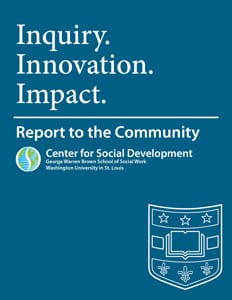
Our newly published Report to the Community provides an updated overview of the Center for Social Development’s work and plans.
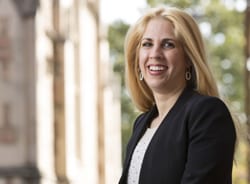
Michal Grinstein-Weiss, associate director of the Center for Social Development, spent part of December traveling in Israel on an important mission: to spread the word about how Israel can best implement its new law to provide universal child savings accounts known in the United States as Child Development Accounts, to all newborns.
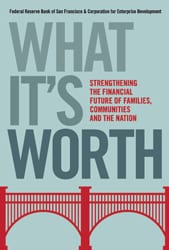
“What It’s Worth: Strengthening the Financial Future of Families, Communities and the Nation” includes 40 essays by the nation’s leading experts on economics, financial services, public policy and philanthropy from across a broad range of sectors.
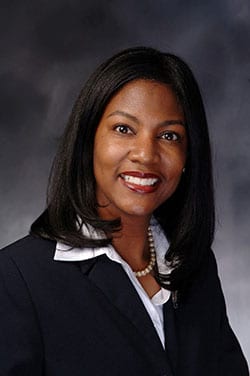
Every kindergartner enrolled this year in St. Louis City public and charter schools is receiving a college savings account, Treasurer Tishaura O. Jones said at the official launch of the College Kids program.
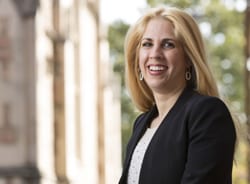
Israel’s parliament has passed a law funding long-term savings accounts for all newborns, based on a proposal developed by Michal Grinstein-Weiss, associate director of the Center for Social Development, and on research efforts led by Michael Sherraden, director of CSD.
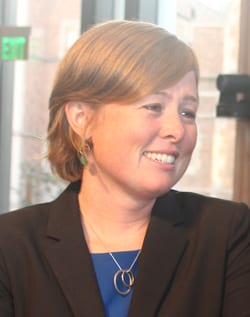
When Molly Metzger was a PhD student, the time came for her to draft research questions for her dissertation. She drew a blank. After three years in classrooms, she felt out of touch with her topic: low-income housing.

The U.S. Department of the Treasury has announced the national launch of the myRA program, a government-backed retirement plan for people who don’t have access to a retirement savings plan at work or who haven’t found an easy enough way to save.
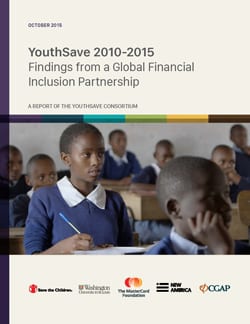
In 2010, researchers in the vast YouthSave Initiative started investigating whether low-income youth can build savings in the developing countries of Colombia, Ghana, Kenya and Nepal. Now their findings are summarized in a newly released report.

More than 100 people gathered in St. Louis in October to hear leading experts discuss the latest research, funding, program and account-structure ideas in the growing field of Child Development Accounts.
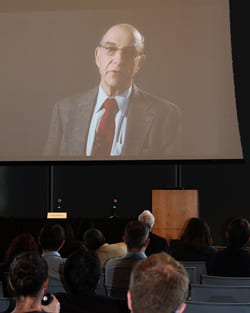
Warning that “we are going to see many more Fergusons in this country,” Richard Rothstein recounts the history of government’s role in racial segregation, in a video created for our event “Inclusive Housing: A Public Forum for Policy Action in St. Louis.”
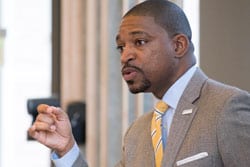
Despite the passage of the Fair Housing Act in 1968, stark racial and economic segregation in housing continues. On Oct. 22, the Center for Social Development and the Clark-Fox Policy Institute hosted “Inclusive Housing: A Public Forum for Policy Action in St. Louis.”
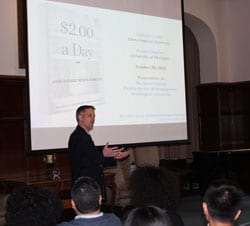
A woman in Tennessee sells her plasma twice a week to help her family of four survive. She has little cash, about $2 a day, but she has a lot of company. The number of families living on $2 per person, per day, has soared to 1.5 million American households, including about 3 million children.
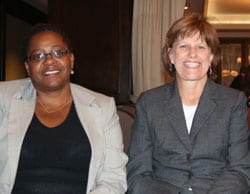
YouthSave researchers gathered recently in Washington, D.C., to discuss what they learned over five years about how to provide scalable saving mechanisms to low-income youth—and what their findings could mean for youth development and financial inclusion.
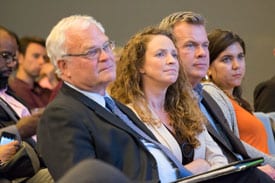
Answering the call to participate in the Smart Decarceration Initiative’s first conference, about 150 people from throughout the country gathered September 24-27 at Washington University in St. Louis to work on redefining justice in America.
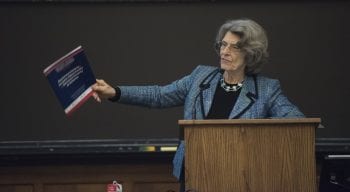
The U.S. Department of Labor on Monday confirmed a grant to St. Louis YouthBuild of $1.06 million to support academic and occupational skills training for at-risk youth. Washington University is is a partner with YouthBuild, a relationship that was seeded by an event early this year initiated by the Center for Social Development.
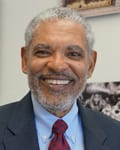
Melvin L. Oliver, PhD, a nationally recognized expert on racial and urban inequality, delivered a major speech Wednesday at Washington University in St. Louis, interspersing it with more than a dozen books he recommends.

The Ferguson Commission in its report released this week called for universal Child Development Accounts that are statewide and automatic.

The United States faces the tremendous challenge of reducing its overreliance on prisons and jails. As the social and economic costs of incarceration rise, great need—and opportunity—exists to reverse the trend. The new Smart Decarceration Initiative, based at the Center for Social Development, is taking up the challenge.

Israel’s parliament will consider a state budget this fall that includes funding for long-term savings accounts for all newborns, a proposal authored by Michal Grinstein-Weiss, PhD, the associate director of the Center for Social Development, and based on research efforts led by Michael Sherraden, PhD, the director of CSD.
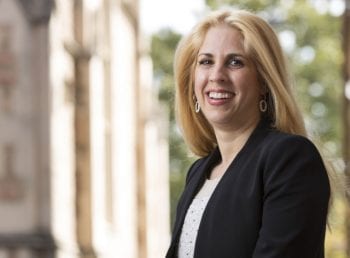
An experimental Individual Development Account had no effect on whether participants opened a retirement account or on the adequacy of their retirement savings, according to a newly published article in the Journal of Gerontological Social Work.
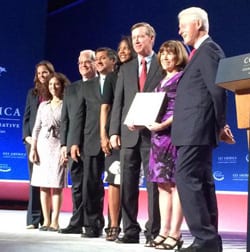
At the Center for Social Development, we believe that financial security should be lifelong, starting at birth and extending from childhood through adulthood. Today CSD is proud to join CFED and more than a dozen other partners in launching the Campaign for Every Kid’s Future.

Most young people in Sub-Saharan Africa are not saving money, and an article in the journal Global Social Welfare explains what helps or hurts them in their efforts.

In the United States, the largest Child Development Account (CDA) programs have been built on existing college savings plans, often called 529 plans after the relevant section of the Internal Revenue Code.
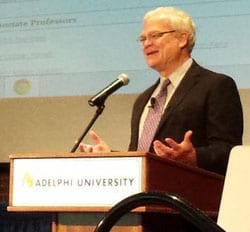
CSD Director Michael Sherraden, PhD, was awarded the Richard Lodge Prize for 2015. He received the prize on May 8 at the Adelphi University School of Social Work’s annual Alumni and Friends Day.

If you’ve ever wondered about the green icons on the top and bottom of CSD’s website pages, here’s a quick explanation.
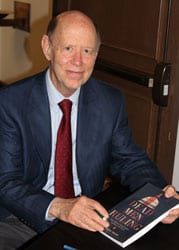
A well-known economist, Dr. Steuerle is an Urban Institute fellow and co-founder of the Urban-Brookings Tax Policy Center and the Center on Nonprofits and Philanthropy.
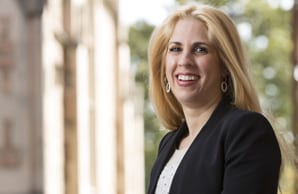
Tax-time savings programs help low- and moderate-income families save significantly more of their refunds than those who choose not to participate, finds an analysis of such a program called $aveNYC.
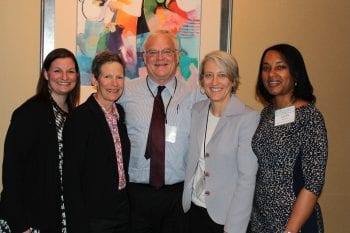
People in the field of social work are crucial to broadening how to think about the poor and their financial decision making, Camille Busette, PhD, said in the keynote speech at the 2015 Convening on Financial Capability & Asset Building: Advancing Education, Research, and Practice in Social Work.
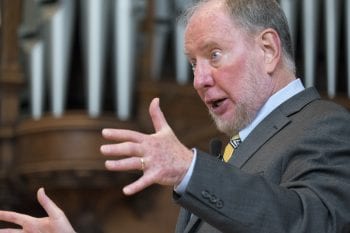
Robert Putnam grew up in Port Clinton, Ohio. Back then, in the 1950s, children from both sides of the tracks in his working-class town went to school together, played sports together, knew each other and watched out for each other.

The Great Recession exposed the financial fragility of millions of American families. Now researchers and policymakers are striving to improve the next generation’s grasp of personal finance and its access to safe financial products.